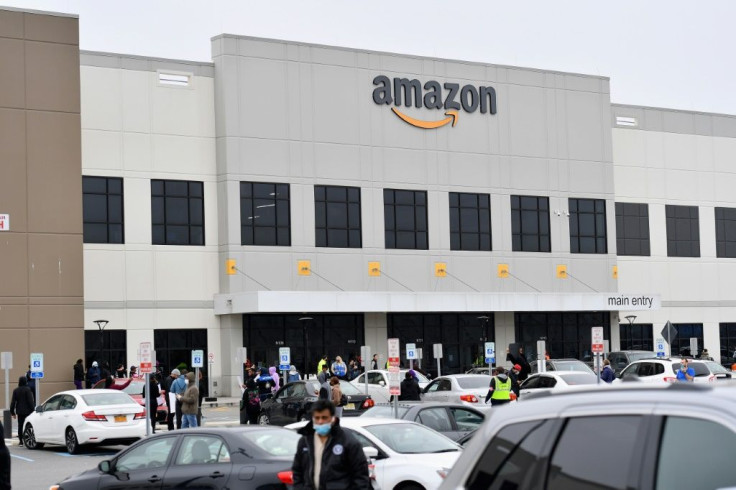Hero Pay Going Away? Amazon, Majors Retailers Quietly Phasing Out Raises For Essential Workers

Major U.S. businesses and retailers have quietly begun phasing out raises given to essential workers earlier in the coronavirus pandemic, dubbed “hero pay.” Despite the continued presence of the virus and the risks it poses to essential workers, these companies have explained the removal of hero pay by claiming that mass “panic buying” has largely subsided.
Amazon, Kroger, and Albertsons have already done away with the raises given to their essential workers, according to a report from the New York Times. Most recently, grocery chain Stop & Shop ended the 10% raise given to its employers, while another chain, ShopRite, plans to end its $2-per-hour hero pay raise within the month.
Despite the seeming end of mass hoarding by customers spooked by the pandemic, the risks posed by the novel coronavirus on these workers have not subsided, with around 40 states reported major surges in COVID-19 cases. Many jobs at grocery stores, retail locations, and e-commerce warehouses require employees to work long hours in close proximity to one another and with crowds of customers.
Even with face mask requirements and other physical safeguards in place, essential employees are still at a heightened risk of infection as well as mental health decline, with many arguing that hazard pay is still warranted.
Complicating things further is the fact that without some sort of hazard pay, many essential workers are earning less than unemployed workers. This is due to the $600-a-week additional benefit given to them as part of the government’s pandemic relief efforts.
“We got videos from our employer saying thank you. We got musicians from the Grammys, or whatever, saying thank you,” Nick Stone, a worker at a Nevada construction material plant, told NPR. “If we're so thanked and so important, why don't they write a bill for us?”
© Copyright IBTimes 2025. All rights reserved.





















